11 Ways to Be a Better Ally to the LGBTQIA Community
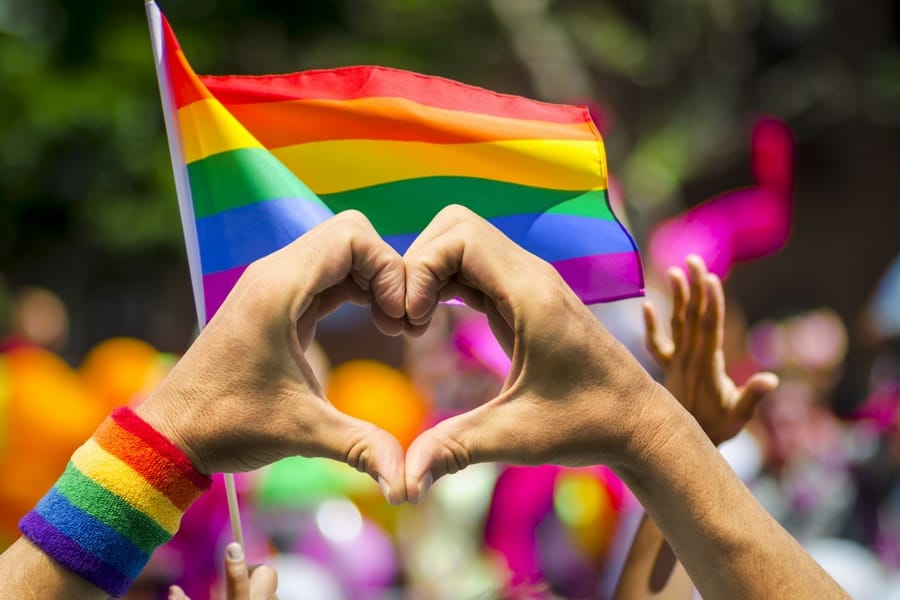
You don’t have to identify as LGBTQIA to be a part of positive social change. You can be a straight ally. The road to successful ally-dom is fraught with well-intentioned missteps, and this is far from a one-list-fits-all situation, but what can I say, it’s a start. Lesson #1? Being a good listener is the key to being a good ally. So I turned to some friends and activists for some advice about supporting the movement for gay rights.
Here’s what they wished more allies understood:
1. Listen
Don’t let your thoughts or ideas drown out the LGBTQIA voices in the movement. What seems like the most important issue to you may not be the most important issue to the very people it actually effects.
For example, before all marriage was legalized in the U.S., there were many advocates who questioned whether that was really the most important thing they could be working on. A lot of straight people, though, were all about some marriage.
2. Be Accepting
As one friend put it, “When somebody says they are or are not a certain gender or sexuality, you need to believe them without questioning it. They’ve questioned it enough already.”
3. Don’t Limit Your Understanding to Gays or Lesbians
Bisexual and pansexual people are routinely misunderstood. Pan or bi doesn’t mean “attracted to anybody” or “attracted to everything.” It also doesn’t mean that they’re going to have a threesome with you or that they’re just trying to get more attention. And no, it’s not “just a phase.”
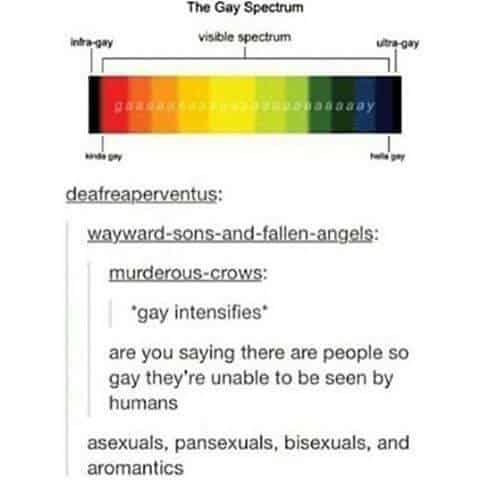
(image via Asexual Aces)
4. Don’t Be Nosy Just for the Sake of Being Nosy
That doesn’t mean you can’t ask questions, it just means you shouldn’t ask rude questions. For example, “What pronouns do you prefer?” is a great question, but “What are you really?” or “How do you have sex?” is not. Jude Hayden, a trans man who deals with these issues on a day-to-day basis, suggests, “If it would be weird for me to ask you, don’t ask me.”
And really, those are just words to live by.
5. Respect Pronouns!
If a friend asks you to use a certain set of pronouns (i.e. feminine or gender neutral), just do it. No one cares that “they” is grammatically plural, not singular, or at least, I don’t.
6. Validate Experiences
Not sure what that means? Essentially, it comes down to recognizing and accepting someone else’s experience. Don’t make it about yourself or about someone else; be there for them instead.
7. Don’t Make Assumptions
Everyone knows the adage, but it’s nonetheless a good rule. Everyone has unique experiences and feelings, so what one person is fine with may not work for someone else. For example, some people freely identify as queer while others find the term deeply offensive. And honestly, that’s just the tip of the assumption-iceberg.
8. It’s Not All About Gay Marriage
It’s legal — yay! But that didn’t magically solve everything. Suicide, violence, and youth homelessness are all important problems that are disproportionately prevalent in the LGBTQIA community. And people can still lose their jobs for not being straight. What’s the deal with that??
9. Don’t Be a Part-Time Ally
Being an ally means actively supporting the causes of the LGBTQIA community, not to feel good about yourself. Being an ally means speaking up when you see discrimination, not just putting a rainbow bumper sticker on your car. Several of my friends specifically called out events like “Ally Week.” If you’re really in the movement to be supportive, you shouldn’t need a special week of recognition.
10. Never, Ever, Ever “Out” Someone
If someone has trusted you with a secret, you don’t (or at least, shouldn’t), go around screaming it from the rooftops. So why do people feel the need to “out” others without their permission? Even if the impulse comes from a good place (trying to lift your friend’s burden, proving that they really would be accepted, whatever), it’s not your business. More importantly, you could be putting your friend’s job, relationships, and even life in danger. It’s a sick, sad, world out there.

(via Giphy)
11. Be a Role-Model
If you hear something, say something. Respectfully correct people if you hear them say incorrect or insensitive things. And for the love of God, don’t introduce your friend as your “gay friend.” Chances are, they don’t introduce you to their friends as their “straight friend.”
Last modified on May 9th, 2018



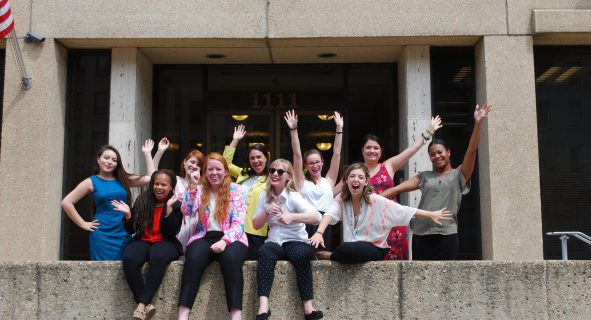
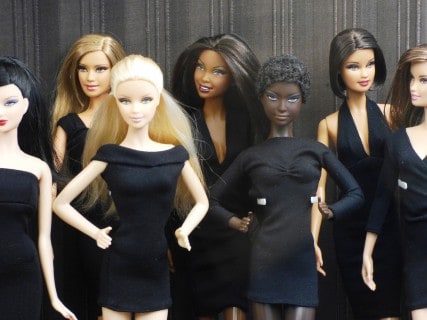
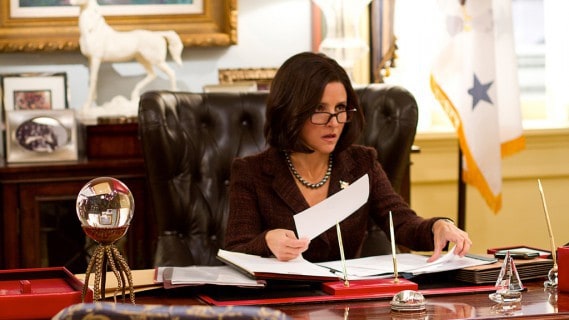
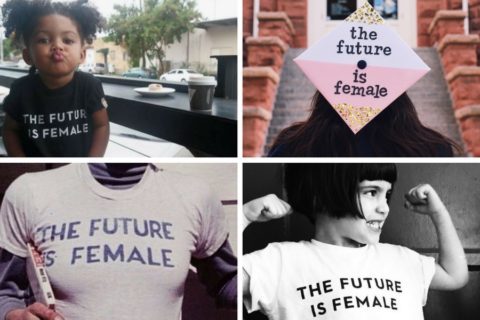



Show Comments +